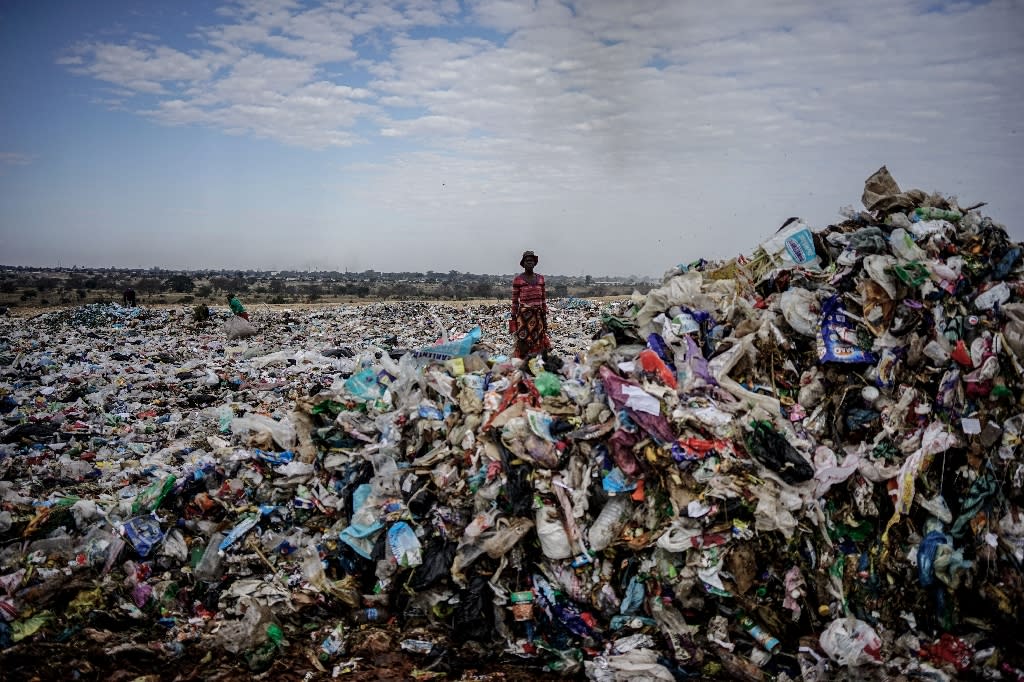Fungi ‘could save the world from plastic pollution crisis’, experts believe

Fungi could be used to clear up the millions of tonnes of plastic waste in our oceans, and could be in use within the next five years, experts believe.
Fungi already found in rubbish tips could help to ‘digest’ plastics – and could be used to clear plastic from the oceans within five years.
A fungus has been found in a rubbish tip in Pakistan which is capable of breaking down plastics such as polyester polyurethane in weeks rather than hundreds of years, raising hopes of new ways to tackle global plastic pollution.
Dr Ilia Leitch, an expert in plant and fungal biology at Kew told the Daily Mail, ‘need to identify those genes and then we can widen the use.
READ MORE ON YAHOO NEWS UK
Puppy with paws tied together by hairband found dumped outside charity shop
Watch: Garden wizard spends 273 HOURS mowing amazing patterns into his lawn
Alton Towers rollercoaster crash victims to sue theme park ‘for millions’
Inside Jack’s: Tesco’s budget supermarket to take on Lidl and Aldi
They could be put in marine fungi to help clear the plastic in the oceans.’
A report last week rom the Royal Royal Botanic Gardens, Kew, estimates there are about three million species of fungi – but experts say too little is known about this kingdom of nature.
Katherine Willis, director of science at Kew, says that such a fungus could be in use within five years.
Fungi living in plants which can break down molecules in plant cell walls directly into chemicals with similar properties to diesel could help make biofuels more economically and sustainably than at the moment.
And a fungus which can grow in extremely acidic conditions and tolerate high levels of gamma radiation could help clean up sites contaminated by radioactive waste, the report said.
Director of science at Kew, Professor Kathy Willis, said: ‘The potential of fungi to address clearly critical problems we have is very strong.’

 Yahoo News
Yahoo News 

